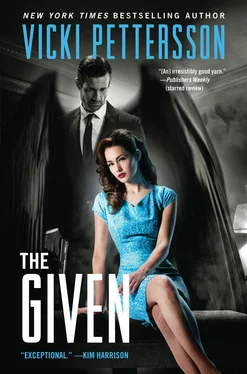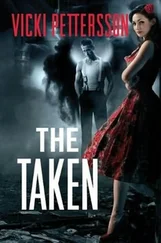“The residents are given one of three grades upon admission to Sunset.”
“Like in school?” Grif said.
Kit inclined her head. “An A means they’ll likely regain their independence. B means they’re still in control of bodily functions and mobility.”
“And a C?”
Kit shook her head. “That’s the thing. There is no C. There’s only a steep drop to F. End of life. The mission is to get patients in the A group back on their feet, and a handful of those actually do leave full-time care. But look at what happens to the Bs and Fs at Sunset. It’s a slow decline into F status, but it happens down to the last person.”
Grif crossed his arms. “What about their families?”
“Notified, but look, if a family member was having trouble taking care of their elderly loved one before, they’ll naturally find any new complications impossible.”
Grif frowned at the screen. “So what happens to the Fs?”
“Here’s a report given to the family of a resident just last summer.” Marin pushed it his way, and he slid it across the table so Zicaro could see as well. “The chart is marked ‘terminal’ at the top, yet you can see from the files that efforts to sustain and extend his life go far beyond that expressed on the admission forms.”
“So it’s an insurance scam,” Zicaro guessed.
“No,” Marin said, turning the screen back to face her. “The claims are never filed.”
Grif shook his head. “I don’t understand.”
Kit leaned back in her chair and jerked her chin. “Turn the page.”
Zicaro did it for him. Shifting the stack around, he flipped it open. After a moment he said, “These numbers. They look like . . . what? Bank accounts?”
“Trust accounts,” Kit corrected excitedly. “Trusts that management takes over shortly after each patient arrives. All monies are kept in a single account. They don’t ask the families for the numbers directly, but they don’t have to when the cost of care is withdrawn automatically each month. Social Security goes through those accounts, military retirement pay, Medicare, Medicaid . . . the wealthier patients even have wills and deeds attached . . . but the most telling are these.”
She leaned across the table, sending a rose scent wafting Grif’s way. He refocused as she pointed to a row of cells. “Credit card numbers. I don’t know if you knew this, but most elderly people have stupendous credit.”
“Not me,” Zicaro said, and they all looked at him. He shrugged. “I’m really bad at being elderly.”
“So’s he,” Kit quipped, pointing at Grif. “Anyway, we’ve only begun searching these files but it looks like all of these cards are maxed out, but only after the limits were raised.”
“Again and again,” Marin added. “Minimum payments are made to the cardholder accounts, though not from the individual’s bank account.”
No, thought Grif, catching on now. Some eagle-eyed family member might be keeping tabs on that.
“They all come from a central account at Sunset,” Kit explained. “Meanwhile, other credit card accounts continue to be opened under the patient’s name, which is strange as most people living at an assisted-care facility don’t get out much.”
“What about TV and telephone pitches?”
“Calls are monitored,” Marin said. “I checked. Solicitors don’t get through.”
“There’s online shopping now,” Grif pointed out, nodding at Marin’s computer.
Kit said, “Not for people who have trouble even seeing the screen.”
“Not,” clarified Zicaro, “for people whose hands shake too much to navigate the keys.”
He cleared his throat, like his toast had suddenly gone dry in his throat.
“And not for people,” Marin said, swinging the laptop back around, “who are kept so drugged up that they don’t even know their own name.”
“Jesus.” Grif rubbed his eyes, and thought about all the blinds that could be put in place to hide income and expenses over time. How a family’s desperation could be used against them. How someone could be systematically stripped of their material worth without even knowing it.
“No family has ever challenged the creditors?”
“You mean the grief-stricken families? The ones who couldn’t even change a bedpan?” Marin looked at Grif. “Tell me this, how much do you know about your financial situation right now?”
“I know I have enough money to get through the day,” he said, and Kit snorted.
“I check my statements every month,” Zicaro said proudly. “I get yearly credit reports.”
Marin lifted her eyebrows. “Really? So you have the contact information for every credit card you’ve ever opened? Every bank account? The passwords for each of them?”
Marin shook her head when Zicaro said nothing. “And what if you had children? Would they be able to locate them if something happened to you? Because I’ve dealt with a loved one’s personal effects and I can tell you it would take months and months of searching and discarding and fighting through red tape to figure out what’s going on here. Most people don’t have the resources or time for it. It’s hard enough for them to arrange for the casket and pack up the house for Goodwill. Forget proof of wrongdoing on the part of a caregiver.”
“But we’ve got proof,” Grif said, nodding at the computer.
Marin’s eyes gleamed now. “Oh, we’ve got enough to bury everyone involved.”
“No wonder they want to blow up your house,” Zicaro said, returning to his toast.
To her credit, Marin didn’t blink. “No wonder they want to meet with you this afternoon.”
“I’m not afraid,” said Zicaro. “We’re meeting at a casino in the middle of the Strip. What could go wrong?”
On what was supposed to be the last day of Kit’s life? Grif looked at Kit, who was biting her lip, noticing his concern. What, indeed?
“I’d like to ask you to stay here at Marin’s this afternoon,” Grif said to Kit. He knew better than to demand it. “Uncle Al and I can see to the business at the casino.”
He was praying that they wouldn’t have to fight about it for long. He couldn’t explain in front of Zicaro and Marin why it was important, but she’d want to know. She always did. So even Grif was surprised when she only nodded. “I think that’s best.”
“You do?” Marin asked.
“You do?” said Zicaro, also goggling.
“You do?” Grif said.
“Sure,” Kit said, blinking back at them all. “Divide and conquer, right? You guys can go compare the size of your flash drives with the bad guys, but there’s a ton of information that still needs to be combed through.” She glanced at Marin, her look growing pointed. “I can’t do it all myself.”
Marin’s jaw clenched as she shoved back from the table. “I have to get ready for work.”
She strode from the room without another word, obviously upset, though Grif didn’t know why. He was just relieved that Kit would remain out of danger. “So you’ll let me handle this part?”
“Us,” Zicaro corrected.
“Happy to,” Kit said, and rose as well, heading to the kitchen with her coffee cup, gone before Grif could even frown, much less question why.
Grif worked the North America beat as a Centurion, but it’d only been that way for the past decade. When he’d started ferrying wounded souls to the Everlast—the murders and the suicides, the hit-and-runs, the skydivers with badly packed chutes—Sarge had been worried that Grif wouldn’t be able to keep his emotions in check, so he’d confined Grif’s Takes to Continental Europe, where speech and cultural relativism were barriers to Grif’s understanding. Where the dead couldn’t burden him with the details of their demise.
Читать дальше












